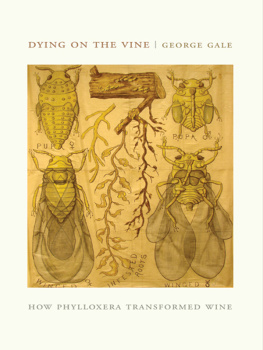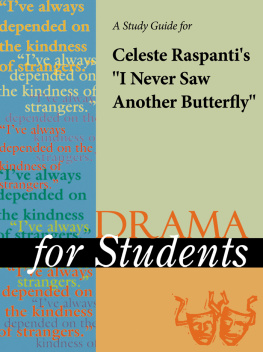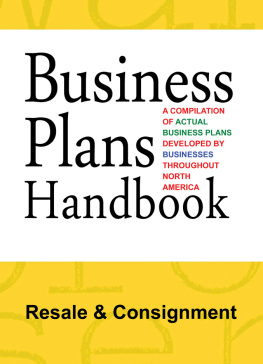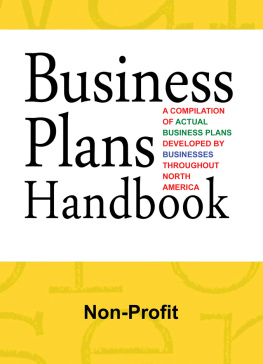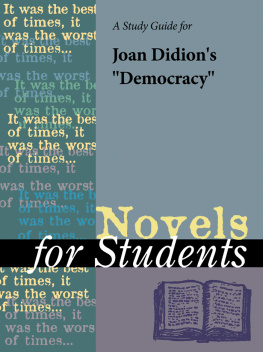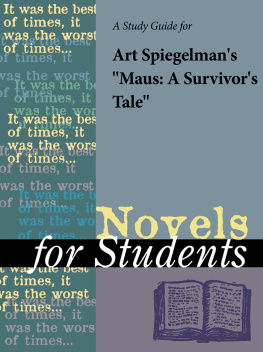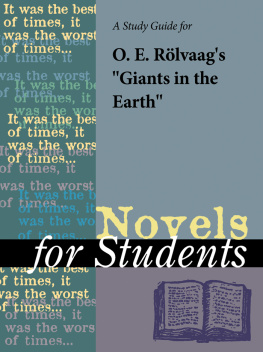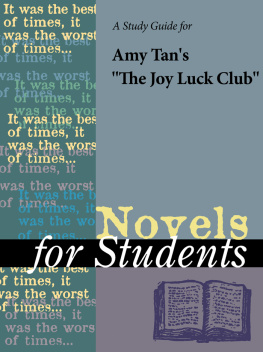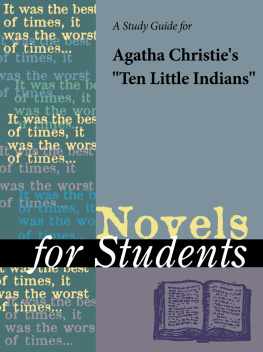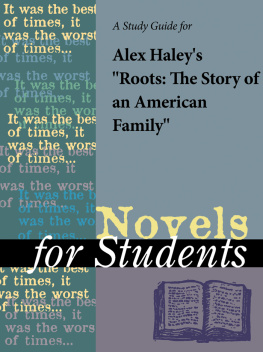TABLE OF CONTENTS
Guide
Novels for Students, Volume 24
Project Editor: Ira Mark Milne
Editorial: Anne Marie Hacht, Sara Constantakis
Rights Acquisition and Management: Edna Hedblad, Lisa Kincade, Tracie Richardson, Kim Smilay
Manufacturing: Rita Wimberley
Imaging: Leitha Etheridge-Sims, Lezlie Light, Mike Logusz, Dan Newell
Product Design: Pamela A. E. Galbreath
Vendor Administration: Civie Green
Product Manager: Meggin Condino
2007 Gale, a part of Cengage Learning Inc.
Cengage and Burst Logo are trademarks and Gale is a registered trademark used herein under license.
For more information, contact
Gale, an imprint of Cengage Learning
27500 Drake Rd.
Farmington Hills, MI 48331-3535
Or you can visit our Internet site at http://www.gale.com
ALL RIGHTS RESERVED. No part of this work covered by the copyright hereon may be reproduced or used in any form or by any meansgraphic, electronic, or mechanical, including photocopying, recording, taping, Web distribution, or information storage retrieval systemswithout the written permission of the publisher.
For permission to use material from this product, submit your request via Web at http://www.gale-edit.com/permissions, or you may download our Permissions Request form and submit your request by fax or mail to:
Permissions Department
Gale, an imprint of Cengage Learning
27500 Drake Rd.
Farmington Hills, MI 48331-3535
Permissions Hotline:
248-699-8006 or 800-877-4253, ext. 8006
Fax: 248-699-8074 or 800-762-4058
Since this page cannot legibly accommodate all copyright notices, the acknowledgments constitute an extension of the copyright notice.
While every effort has been made to ensure the reliability of the information presented in this publication, Gale, an imprint of Cengage Learning does not guarantee the accuracy of the data contained herein. Gale, an imprint of Cengage Learning accepts no payment for listing; and inclusion in the publication of any organization, agency, institution, publication, service, or individual does not imply endorsement of the editors or publisher. Errors brought to the attention of the publisher and verified to the satisfaction of the publisher will be corrected in future editions.
ISBN-13: 978-0-7876-6947-8
ISBN-10: 0-7876-6947-4
ISSN 1094-3552
Printed in the United States of America
10 9 8 7 6 5 4 3 2 1
The Poisonwood Bible
Barbara Kingsolver
1998
Introduction
When The Poisonwood Bible was published in 1998, Barbara Kingsolver was already a well-established and respected author. Her fourth novel, however, became an overwhelming critical and popular success, especially after Oprah Winfrey chose it for her book club. The novel sold more hardcover copies than all of Kingsolver's previous works put together, including three novels, short story collections, a poetry collection, and two nonfiction works.
As in many of her other stories, Kingsolver in The Poisonwood Bible focuses on the complexities of family relationships and communities in which people experience a clash of cultures. Yet here, she widens her scope to include three decades in the second half of the twentieth century during a time of political upheaval in the Congo. The novel focuses on the experiences of the Price family, who arrive in the Congo in 1959, emissaries of the Southern Baptist Mission League. Orleanna Price, along with her four daughters, struggles to adapt to and to survive the harsh conditions there while her husband, Nathan Price, descends into madness as he tries and fails to force the villagers to adopt his rigid Christian doctrines.
The family's troubles become life-threatening as the Congolese fight for their independence from Belgium and from U.S. interference in their political and social affairs. Kingsolver's intermingling of politics and human drama results in a satisfying tale of betrayal and forgiveness. Reviewers have applauded the novel's compelling characters, its political themes, and Kingsolver's insight into the complex dynamics of the family.
Author Biography
Celebrated author, journalist, and human rights and environmental activist, Barbara Kingsolver was born in Annapolis, Maryland, on April 8, 1955, but she grew up in rural Kentucky. As she watched her country doctor father serve the poor and working class, she developed a sense of social responsibility and devotion to community that was later expressed in her writing.
When she was in the second grade, her father accepted a medical position in the Congo and moved his family there. At that time, Kingsolver began her life-long habit of writing in a journal. During her junior year at DePauw University where she was studying biology, she took time off to work in Europe as an archaeologist's assistant. After eventually earning a degree at DePauw, Kingsolver lived for periods of time in Europe and the United States, supporting herself with an array of occupations, including typesetter, x-ray technician, copy editor, biological researcher, and translator. In 1981, she earned a master's degree in ecology and evolutionary biology from the University of Arizona and soon began working as a technical writer and freelance journalist.
By 1987, she decided to devote her time to writing fiction, and in the following year, her first novel, The Bean Trees, was published and gained national acclaim. The novel focuses on a young Anglo woman who moves to Arizona after adopting a Cherokee girl. Many of Kingsolver's later works are set in the American southwest and address the culture clash between Native Americans and Anglos. With The Poisonwood Bible (1998), Kingsolver broadened her scope to the landscape and politics of Africa.
Awards that followed for her other work include the Feature-writing Award, Arizona Press Club, 1986; American Library Association Award in 1988 for The Bean Trees and in 1990 for Homeland; citation of accomplishment from United Nations National Council of Women, 1989; PEN Fiction Prize and Edward Abbey Ecofiction Award, both 1991, for Animal Dreams (1990); Woodrow Wilson Foundation/Lila Wallace fellowship (19921993); an honorary doctorate from DePauw University, 1994; and the Book Sense Book of the Year Award, for The Poisonwood Bible, 2000. Also in 2000, Kingsolver received the National Humanities Medal, the highest U.S. award for service through the arts. Her devotion to her craft and to her progressive political sensibility prompted her to establish and fund the Bellwether Prize, awarded to previously unpublished authors who address themes involving social and political injustice.
As of 2006, Barbara Kingsolver was married to Steven Hopp, and the couple lived with their two daughters in Tucson, Arizona, and on a farm in Appalachia. Hopp and Kingsolver co-author essays and articles, some of which are included in her collection of essays, Small Wonder (2002).
Plot Summary
Book One: Genesis
The narrative presents multiple points of view as Orleanna Price and her four daughters each tell their own story of their family's experience in the Congo. Orleanna Price opens



